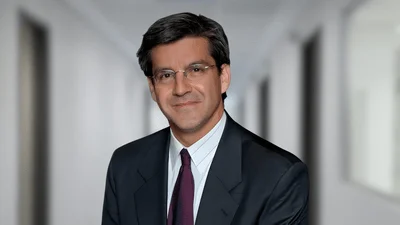Ted Dabrowski
Ted Dabrowski
Ted Dabrowski predicts you haven’t heard the last about the new school funding formula that critics charge was written by unions as a way of getting their hands on more state tax dollars.
“There will be a lot of angry people when the times comes to pay for all this,” Dabrowski, president of Wirepoints, a business and government website, told the Prairie State Wire. “The taxpayers are the real losers here because all this money could be much better used and wisely spent.”
Passed in 2017, the bill is touted as finally addressing the long existing disparities in the way public schools across the state are funding compared to other institutions.
The evidence-based approach was supposed to even the playing field by providing more state resources for poorer districts and adjusted levels for communities with greater property tax wealth.
Over time, Dabrowski believes the faulty reasoning behind stoking the plan will have major consequences, he said.
“Unions and lobbyists pushed for a lot of what you see happening with this convoluted formula,” he said. “Expect major pushback when taxes will have to go way up to pay for it. This formula is a colossal failure because it did nothing to reform, nothing to roll back the massive administrative costs in schools. With real reforms, all kinds of money would have been available for poorer districts.”
The Daily Herald reports 18 school districts across the suburbs are now facing potential tax-cutting referendums after being stamped above the “adequacy” levels designated by the formula guidelines.
The language for the new formula guidelines is the work of Ralph Martire, a longtime lobbyist for teacher’s unions across the state from River Forest, according to West Cook News.
As the head of the Center for Tax and Budget Accountability (CTBA) advocacy group, funded by the largest public employee unions in Illinois, Martire has developed a funding plan with dollars from Springfield allocated on hiring and spending criteria outlined by the state.
Districts that do not raise taxes run the risk of not meeting new spending standards for public schools that could result in an institution being denied its share of matching state school funds.
“This formula conveniently ignores that Illinois already spends the most on schools in the Midwest,” Dabrowski said.
Currently, state taxpayers are also forced to dole out more in annual public school funding than all other state government functions combined.





 Alerts Sign-up
Alerts Sign-up